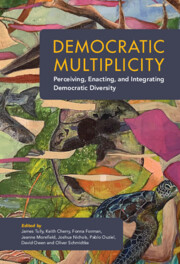Acknowledgments
We acknowledge with respect the Lekwungen peoples on whose traditional territory we live and work and the Songhees, Esquimalt, and W̱SÁNEĆ peoples whose historical relationships with the land continue to this day.
The chapters in this volume originally began as papers submitted to and commented on during a workshop hosted by the Cedar Trees Institute (CTI) and the Centre for Global Studies at the University of Victoria, British Columbia, Canada, on March 21–22, 2019. The workshop was organized as part of the Jean Monnet Project “Canada Europe Dialogue on Democracy (CEDoD)” and cofinanced by the Erasmus+ Programme of the European Union and the Centre for Global Studies at the University of Victoria. The workshop documentation can be found at www.eucanet.org. We are most grateful to the contributors for their outstanding chapters. They show us new ways of studying and enacting democracies here and now. We are also thankful for the assistance they have given us in creating and editing this volume at various stages.
We are grateful to all of the participants, administrative staff, and student volunteers who helped cocreate the workshop from which this volume was born. In particular, we acknowledge Jodie Walsh, Beate Schmidtke, Phil Cox, Karen Yen, Chris Chan, Kadi Diallo, Stephen Gnanasihamany, Stephanie Gruhlke, Chorong Kim, Mabel Martinez-Dusan, Sam Alexander Rodriguez, Jennifer Swift, and Elissa Wittington for their help organizing the workshop. We would also like to thank all the participants in the preparatory sessions who helped shape the workshop themes and structures, especially Christina Gray, Taiwo Afolabi, Ben Isitt, Michael Carpenter, Didier Zuniga, Astrid Perez Pinan, Sara Naderi, Corey Snelgrove, Joëlle Alice Michaud-Ouellet, Stacie Swain, Franziska Fischer, Phil Henderson, Eszter Bodnár, Ramesh Bairy, Lana Lowe, Benjamin Perrier, Mike Simpson, Rebeca Macias Gimenez, Ryan Beaton, and Rebeccah Nelems. Many thanks to Kate Langridge and the team at Stream of Consciousness, Dennis Pilon, Laurel Collins, and Tom Junes for their participation in the workshop’s public events. We are especially thankful to the University of Victoria’s First Peoples House for hosting us in their beautiful ceremonial space, and to Tsartlip Elder May Sam for welcoming us to her traditional territories in a good way.
We are also grateful to a large number of people who have helped us shape this publication along the way, in particular Vanessa Udy for her editorial work, Helen Cooper and Vidya Ashwin for editing and production, and Robert Dreesen, Erika Walsh, Claire Sissen, and their team at Cambridge University Press for taking on this project and helping us develop it.
We gratefully acknowledge the financial support for Open Access and research provided by the Centre on Global Studies, University of Victoria; the Center on Global Justice, University of California, San Diego; New College, Oxford University; Department of Politics and International Relations, Oxford University; Book and Creative Works Subvention Fund, University of Victoria; University of Illinois at Chicago; Social Sciences and Humanities Research Council of Canada; (Project: ‘Populism and its Effects on Liberal Democracy’), and Deutsche Forschungsgemeinschaft (DFG, German Research Foundation) for funding under Germany’s Excellence Strategy – EXC 2037 ‘CLICCS – Climate, Climatic Change, and Society’ – Project Number: 390683824.
Note on the Cover
Karen Yen Homecoming
This image began with an exercise of listening – listening to the human and beyond human world. From the rustle of leaves in gentle breeze, fluttering sounds as birds are startled by intruders, hidden silence of a deer resting among hazelnut trees, to my body immersed in the rushing waters of the river; in this context, humans are merely one more resident in this broad and diverse world. A world that is vibrant, complex, layered, interactive, interconnected and expansive. Why should our understanding and practice of democracy be any less? Wouldn’t this kind of democracy serve to create a virtuous “Home” for all? The painting visits the idea of “Home” as a safe and nurturing space for humans and our beyond human siblings. Inspired by Bill Reid’s “Spirit of Haida Gwaii”, can we contribute by paddling our canoe in a direction that weaves the organic and the unknown with human created structures and processes, in the abstract, material and spiritual sense? These are the questions this work addresses.

